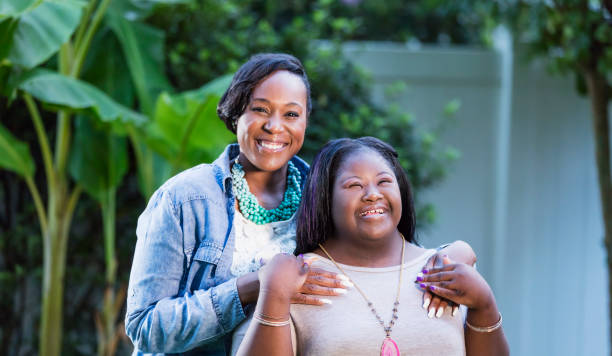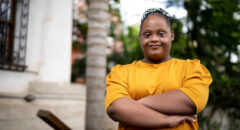
If you find yourself on the incredible journey of raising a child with Down Syndrome, rest assured that you're not alone. In the United States, for every 700 births, one baby enters the world with Down Syndrome, and that number is on the rise within our diverse community. Embracing this unique path may raise questions, and that's perfectly normal. Let's dive into what you can expect when nurturing your extraordinary Black child.
1. Physical Growth and Development: Slow and Steady Wins the Race
Children with Down Syndrome often follow a slightly different timeline when it comes to physical milestones. While the Centers for Disease Control and Prevention offers growth charts as a reference, it's crucial to remember that each child is unique.
Expect crawling, walking, and talking to happen, but perhaps at a slower pace. Patience is key, as crawling may begin around 18 months, and walking around month 28.
“While every child is different, one of the first things that parents will notice about their child with Down syndrome is that they are slower to reach milestones,” Kathy Higgins, family liaison and early intervention evaluation coordinator at The Arc Westchester Children’s School for Early Development in Hawthorne, New York tells Everyday Health.
Working closely with a physical therapist can guide your child to make proper movements, preventing potential habits that may cause harm.
2. Learning at a Different Pace: Embracing Individuality
Learning for children with Down Syndrome may take a different route. Due to physical challenges, their exploration of the world around them might be impacted.
Intellectual delays may make them more aligned with younger peers. Visual learning becomes a powerful tool, where attaching visual cues to words aids understanding. While adolescence can pose challenges, understanding and supporting their unique learning style can make a significant difference.
“Children with Down syndrome are intellectually delayed — they can be high school–aged but fit in better, both psychologically and intellectually, with children in middle school,” Higgins adds.
3. Social Development: Connecting Hearts
Social development in Black children with Down Syndrome often aligns closely with their peers. From engaging smiles to learning social behavior, these children show affection and warmth.
Parents play a vital role in facilitating early social connections, but as your child grows, fostering independence becomes key. Encouraging practical and social skills ensures they are well-equipped for the real world.
Try organizing play dates for your child initially. As your child grows, he or she will desire increased independence. At that point, it becomes your responsibility to nurture and support that spirit, ensuring your child is prepared for the challenges of the real world.
Not sure where to start? You can start by encompassing practical abilities like allowing your child to dress themselves and cook, as well as social skills that involve gaining awareness of social cues and appropriate behavior. This holistic approach will equip your child to thrive both independently and socially.
4. Embrace the Individual: More Similar Than Different
In the midst of these unique developmental journeys, it's essential to remember that children with Down Syndrome are more alike than different. They share the same desires, fears, and interests as their peers.
While being aware of differences can guide you in offering tailored support, it's crucial not to fixate on them. Celebrate the joy, laughter, and love that your child brings into your life, and cherish the shared experiences that make every child, regardless of abilities, a true gift.
The road of raising a Black child with Down Syndrome is filled with its own set of adventures. Embrace each milestone, celebrate the uniqueness, and lean on the supportive community around you. Your journey may have its own rhythm, but with love, patience, and understanding, you'll discover the incredible joy that comes with nurturing a child who is beautifully and uniquely their own.









